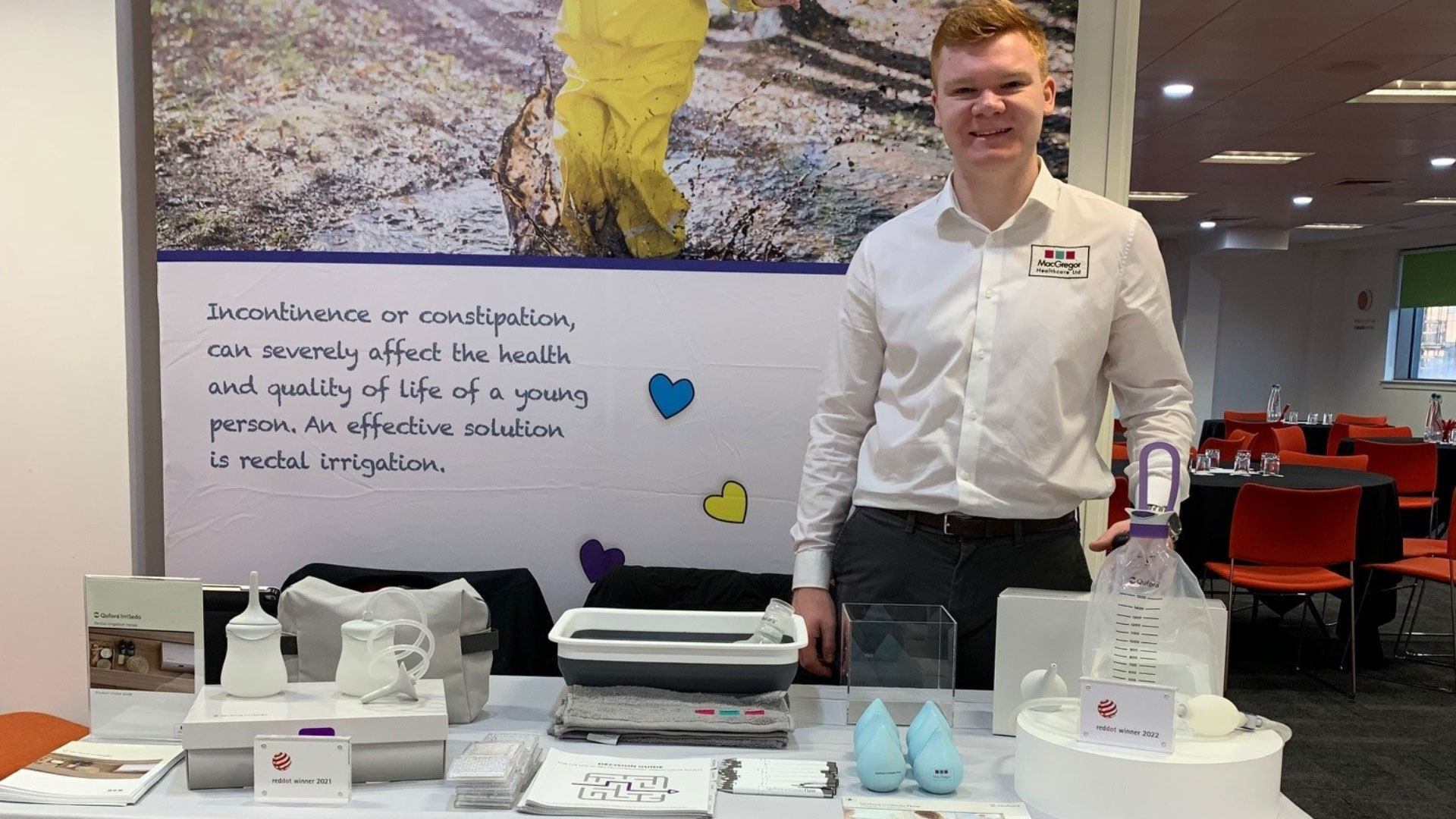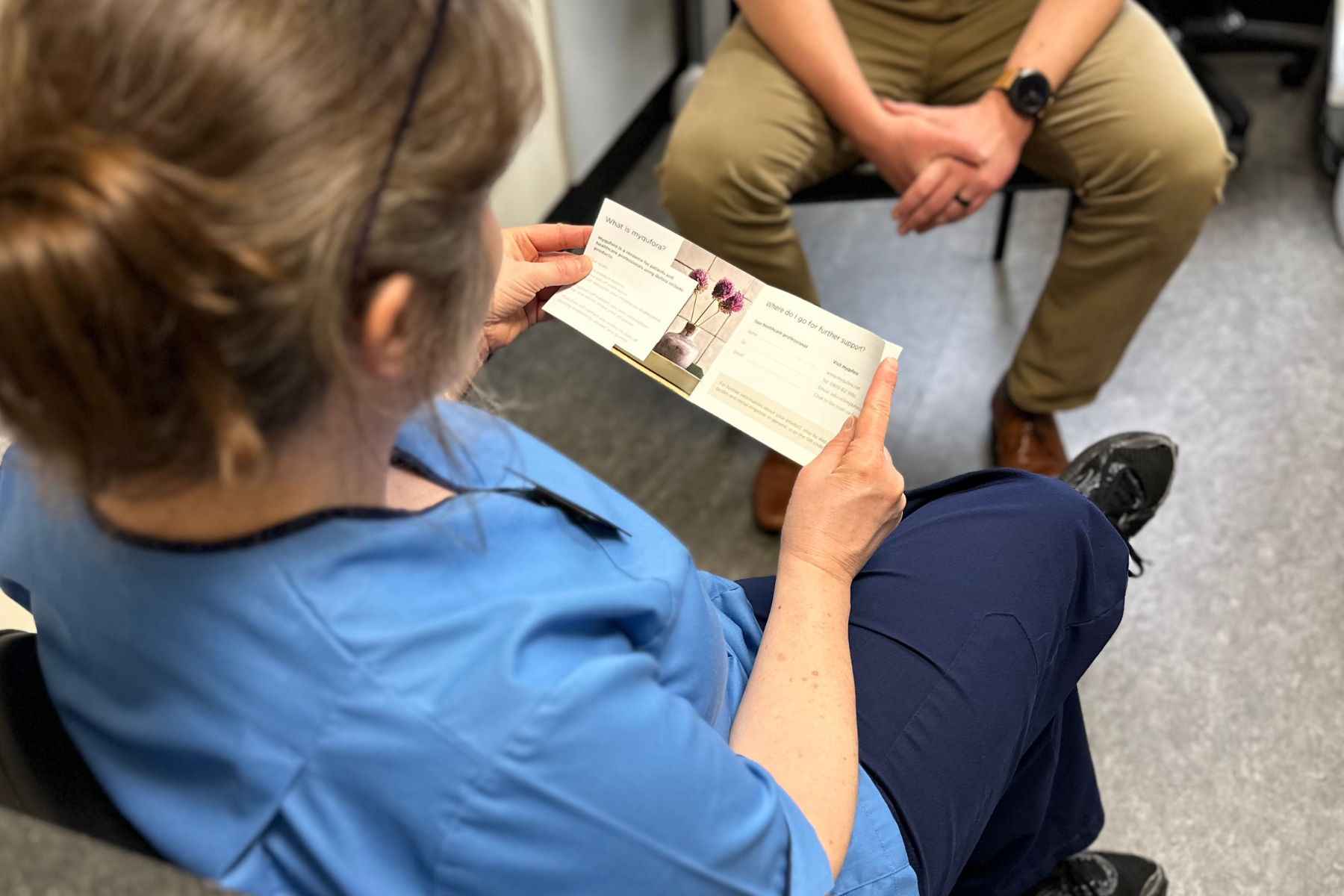
Paediatric Continence Scotland Review
by Andy Hamilton, Head of Marketing UK & Ireland, MacGregor Healthcare Ltd
This is what happens when two of the marketing team attend Paediatric Continence Scotland seminars.
It’s not often marketing take sole responsibility at an event, but due to circumstances, off we went to Glasgow for the Paediatric Continence Scotland conference at the end of January. We were on the 8th floor in a great venue overlooking the city’s financial district. As I looked down, I saw big office blocks with big glass windows all with numerous banks of empty office desks. Hybrid working and post COVID in action, but it contrasted with the buzz around the event on a cold day.
It’s also not often that marketing has the chance to sit in on the seminars. But I was lucky enough to listen to ‘Getting bowels better “All about the medicines”’. Laxatives and medicinal treatments is obviously something I don’t touch on everyday but I was drawn to a couple of similarities with managing functional constipation using rectal irrigation (RI).
Firstly, the importance of assessment and follow up is crucial for patient adherence. There’s NICE guidance on follow up for medicines as stressed in the seminar. Experts agree, there’s a similar need for follow up when prescribing RI. As outlined in the decision guide. Step five of the five steps talks about early liaison being important and how the first month is important in supporting a patient. This principle is also a core part of our myqufora support service. And if you read one of our latest articles ‘The myqufora Support Team’s personalised approach to patient care’, it can take longer than a month for some patients supported by the team.
The other similarity between RI and medicine in managing functional constipation was the need to minimise the impact on the patient. The seminar discussed getting children to try their medicine at the weekend to minimise the impact on the school week or embarrassment around their peers. It also discussed those medicines that were tasteless tended to work best – therefore minimising the impact on the patient. Children are known (I’m a father of a seven year old girl) to be fussy about their food and drink and immediately put up barriers with medicine and taste is their go to barrier. So, obviously there is a need to mask things, like a salty taste, and give the medicine every chance of being accepted and do its job.
Okay, prepare for a little bit of marketing, but stick with it, it is related. It reminds me of a story of an advertising agency I worked with previously who took a tour of a well know brewery in America as they were newly appointed to promote the global beer giant’s key product. A huge plant, as you would expect in America, churning out vast quantities of beer. On the tour, one of the advertising executives turns to another, quietly, and said ‘what a lot of effort, noise and energy they put into creating something so ‘tasteless’.
Of course, this is inadvertent tastelessness, but there is a need for a conscious decision and make a significant effort to make laxatives and medicine tasteless – and in some ways, to not be a medicine at all and to fit in.
And the similarities with RI devices like ours? We don’t have anything as tangible as taste or lack of it. We minimise the impact on a patient by keeping things as simple as possible. Fitting in to their everyday lives putting their minds at ease. Take Qufora IrriSedo MiniGo. It doesn’t look like a medical device, so it’s design minimises the visual impact on the patient. And a Reddot design award tells us that this is definitely not tasteless design either.
Take Qufora IrriSedo Flow, the box and contents are carefully considered to also put the patients mind at ease. But importantly, unlike medicines, we’re not masking or hiding anything, far from it – it’s providing clarity, order and neatness that we’re programmed to look for as humans. Minimising any psychological or physiological barriers the patient might consciously or unconsciously put up – to give the system every chance of being accepted and do its job.
It was good to be in Glasgow and see some familiar faces at this well attended event – let’s see if marketing will be allowed into seminars again.







